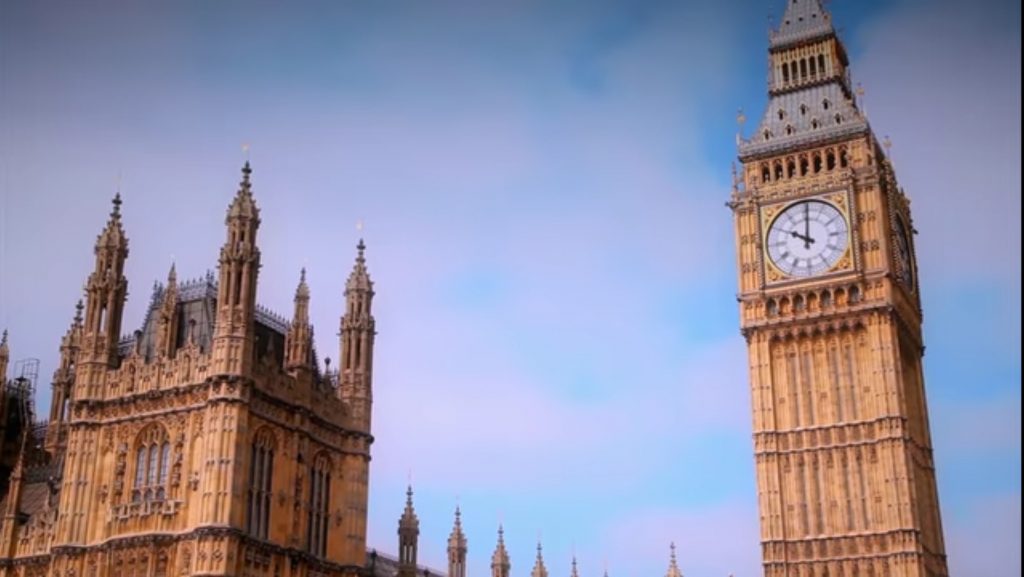Do as I do

17 months. That’s all it took, though to judge by the outraged comments from Ministers it may as well have been 17 centuries ago, so short are their memories. What happened 17 months ago that could possibly have any relevance today?
On 8 September 2020 Brandon Lewis, then Northern Ireland Secretary, announced to the House of Commons that provisions in the Internal Markets Bill on Northern Ireland customs arrangements broke “international law in a very specific and limited way“. It was all justified though because of the unbearable nature of the Protocol the government had agreed to earlier that year. Getting that right for the future justified breaking the law today. There Was No Alternative, as someone quicker on his feet than the plodding Mr Lewis, might have said.
Much harrumphing ensued by what the government’s supporters almost inevitably called “the usual suspects“. They weren’t rounded up of course. Just ignored. The Head of the Government Legal Service resigned. The Lord Chancellor, by contrast, announced that “extraordinary times” called for “extraordinary measures“. The Attorney-General, the Government’s Chief Legal Advisor, announced that breaking international law was a “pretty basic principle of law”. This will come as a relief to law breakers everywhere. If the proposed Ukraine War Crimes Tribunal ever happens and Russian soldiers are put on trial in the U.K., as Ms Braverman has suggested, she might come to regret those words.
So we come to the admission by the Chief Executive of P&O Ferries to the Transport Select Committee that P&O deliberately decided to ignore its legal obligations to consult the unions over its redundancy plans. “There is no doubt we were required to consult to the unions. We chose not to.” And the reason? According to him, the consultation would have been a “sham” because the unions could not possibly agree to the proposals. And anyway the redundant workers would be compensated in full. So what was the problem? He then went on to ask the MPs to remember the commercial context to this decision. He did not quite repeat what Robert Buckland said but that was the essence of his justification. Extraordinary times required extraordinary measures. To cap it all, he prefaced this admission with an apology and ended it with a ringing statement that he would do the same thing again. This must have been one of the shortest and most pointless non-apologies around.
There is a fair amount to unpack in this admission.
- Mr Hebblethwaite ignores the point of the consultation, which is to give the possibility – however remote – of an alternative.
- Employers are not meant to treat it as a sham let alone ignore it because of their belief that employees won’t accept it.
- They don’t get to decide what the other side thinks.
- Employees don’t even have a veto – as they don’t in lots of other circumstances where a consultation is legally required. So the company could have gone ahead with its plans after the consultation. If this dismissal of the concept of a good faith consultation becomes more widely followed by employers, then it is all too easy to see how a government could change the law to give employees a veto to ensure that employers don’t simply buy their way out of their legal obligations.
- Then there is the need for such a rush. If P&O Ferries is in such dire straits that it cannot even manage a 30-day consultation, is it even a going concern at all?
At the time of writing we have not heard from P&O’s doubtless very busy General Counsel and Company Secretary about the advice she gave the CEO about his general legal obligations – not just under employment law. Maybe she is penning her resignation. While waiting, however, we can enjoy a good laugh reading the company’s Corporate Social Responsibility document, still available here. Particularly enjoyable is the page on Investing in People with its touching references to promoting “mutual understanding” and gathering employees’ views. There is also the section on ensuring customers’ safety, which involves complying with innumerable laws and rules. How seriously should these promises be taken given the CEO’s publicly stated approach to legal compliance?
Various Ministers and the Select Committee Chair have expressed outrage. They are going to look at the law. Paul Scully has said that the government will want to show that “they don’t want to encourage anybody to take the same actions as P&O.”
Oh really? Breaking the law in a specific and limited way during extraordinary times is now a bad thing, is it? Who knew? Not Ministers and MPs when it came to what they wanted to do. Did they really think – when they were busy justifying law-breaking the year before last – that others wouldn’t notice and think that they too might do the same thing, when necessary? Tory MPs should stop with all the faux outrage. This is the sort of country, the sort of approach the government and its cheerleaders wanted when they justified law-breaking and attacked those who pointed out why this was not a good idea. Those redundant workers may as well take the compensation money. It’ll be a damn sight more useful than crocodile tears from Tory MPs and Ministers sidestepping their own role in creating this shabby state of affairs.